“And Peter said to them, “Repent and be baptized every one of you in the name of Jesus Christ for the forgiveness of your sins, and you will receive the gift of the Holy Spirit.”
Acts 2:38
Baptism
In the Orthodox Christian Church the practice of baptism is not only a sign of spiritual rebirth, it is the very act of a person’s death and resurrection in Jesus. It is a “new birth by water and the Holy Spirit” into the Kingdom of God (John 3.5).
Baptism is the first Sacrament a child will receive. Through baptism – the sanctification through water – a child becomes a member of the Orthodox Christian faith. It is recommended that the child be baptized before his or her first birthday.
Baptismal guidelines:
- The Sponsor (Godfather or Godmother) must be an Orthodox Christian. If the Sponsor is married, the marriage must have been blessed by an Orthodox priest.
- The role of the Sponsor is directly related to infant baptism. Since the infant is unable to make the necessary confession of faith, the Sponsor stands and vouches for it.
- The Sponsor should be ready to recite the Nicene Creed either in Greek or English. For three consecutive Sundays after the baptism, the Sponsor should carry the newly baptized to the Holy Altar to receive Holy Communion.
- According to the tradition of the Orthodox Church, one name of Orthodox Christian origin should be given to the child at the time of baptism.
- The day, time, and other arrangements of the baptism must be made with the priest. Please call the church office to discuss these arrangements as soon as possible.
The Sponsor should provide:
- A complete change of clothes for the child
- One bottle of olive oil
- A gold cross for the child
- Three white candles
- One of each of the following: bar of soap, hand towel, bath towel, sheet
- Martyrika baptismal pins
In the event that an un-baptized infant is near death, an Orthodox priest may be called to perform a clinical baptism. In the absence of an Orthodox clergyman, a layman or any other Christian may baptize the infant by sprinkling water on the child while repeating the following three times: “The servant of God (name), is baptized in the name of the Father, of the Son, and the Holy Spirit.”
Chrismation
During the Baptismal Service, the person also receives Chrismation.
The mysteries of baptism and chrismation are intimately related in the Orthodox faith. Chrismation is the fulfillment of baptism. While baptism incorporates us into Christ’s family, chrismation makes us partakers of his Spirit. Chrismation is called the seal of the gift of the Holy Spirit; it consists of the accepting of the Holy Spirit as the source everlasting life. Anointed with the Holy Oil, we are marked forever as followers of Christ. We belong to him and to his holy Church.
Those wishing to become Orthodox Christians must receive catechism from an Orthodox priest. After receiving instruction in the faith, the candidates are accepted into the church by one of three ways prescribed by the Sixth Ecumenical Council (Canon 95) as appropriate:
- Baptism in the name of the Father, of the Son, and of the Holy Spirit by triune immersion
- Chrismation
- Confession of Faith
Proof of baptism must be established by an authentic document. The priest must undertake to instruct the applicant in matters of the faith and practice that govern the inner life and outward behavior of the Orthodox Christian. If the applicant has not been baptized in the name of the Holy Trinity in a Christian church by the principle of “oikonomia,” he or she must be baptized as prescribed in the Service Book.


